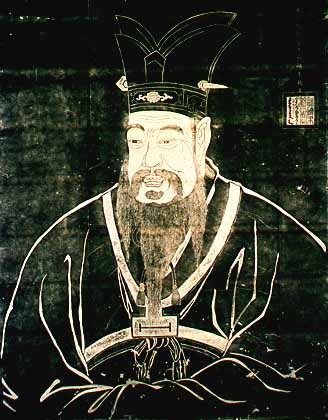Perfecting One’s Self

“The perfecting of one’s self is the fundamental base of all progress and all moral development.”
–Confucius (Chinese Philosopher, 551-479 B.C.)
Procrastination and Perfectionism
Regular readers will know that I am convinced that we are now in a fourth phase of the personal development movement, in which it is now incumbent on writers and speakers to support their propositions and suggestions with empirical data. And if there is no data, then they need to collect some.
There is an idea that has launched a thousand self-help books, websites and seminars: that perfectionism is the primary cause of procrastination. There was a time when I was the Prince of Procastinators. After my “recovery” I became an expert on helping others overcome the problem. So I’ve done a lot of research on procrastination. As I was preparing this posting I looked at over a dozen books and two dozen websites, and almost every one of them had “perfectionism” as a or the cause of procrastination.
But is it true?
The answer is “No.”
Professor Piers Steel from the University of Calgary Haskayne School of Business has published an important paper in the current issue of the American Psychological Association’s Psychological Bulletin.
The paper confirms some things that we have always suspected, for instance that most people’s New Year’s resolutions are doomed to failure, but demolishes the idea perfectionism is the root of procrastination.
The evidence from this work – which is the fruit of ten years of research – is that procrastinators have less confidence in themselves and a lower expectancy that they can actually complete a task. By contrast, perfectionists procrastinate less, but they worry about it more.
These are the main predictors of procrastination:
- Low levels of self-confidence
- Low expectancy of being able to complete a task
- Being task averse
- Impulsivity
- Distractibility
- Motivation to complete the task
The paper also makes the point that not all delays are procrastination: the key factor is that a person must believe that it would be better to start working on given tasks immediately, but still not start work on it.
It is said that 95% of people procrastinate at some time in their lives and 15-20% are chronic procrastinators.
Amazingly, there is a mathematical formula that predicts procrastination. Steel calls this Temporal Motivational Theory, which takes into account the key factors such as the expectancy a person has of succeeding with a given task (E), the value of completing the task (V), the desirability of the task (Utility), its immediacy or availability (Ã) and the person’s sensitivity to delay (D).
This is the magic formula: Utility = E x V/ (Ã) D
I am impressed by this work, but it is also supremely practical, because it helps point us at appropriate targets to treat our own tendency to procrastinate.
There is also something else that is very important. Many of us believe from our own experience that perfectionism is indeed the root of our own procrastination. For a long time I thought so myself. But research like his helps us to re-analyze our understanding of ourselves. We all begin by using folk psychology to explain our behavior and the behaviors of other people. The trouble is that those explanations are often wrong. Research like this can be enormously helpful as we grow and develop as individuals.
It remains unclear why some people may be more prone to procrastination, but some evidence suggests it may be genetic. It may also be more common in people with anxiety disorders or attention deficit disorder.
You may also be interested to evaluate your own tendency to procrastinate. There is a terrific resource here.
“If we wait for the moment when everything, absolutely everything is ready, we shall never begin.”
–Ivan Sergeyevich Turgenev (Russian Writer, 1818-1883)
“The wise does at once what the fool does at last.”
–Baltasar Gracián (Spanish Jesuit Philosopher and Writer, 1601-1658)
“Procrastination is opportunity’s assassin.”
–Victor Kiam (American Businessman and Former CEO of Remington, 1926-2001)
“I have spent my days stringing and unstringing my instrument, while the song I came to sing remains unsung.”
— Rabindranath Tagore
(Indian Poet, Playwright, Essayist, Painter and, in 1913, Winner of the Nobel Prize for Literature, 1861-1941)






